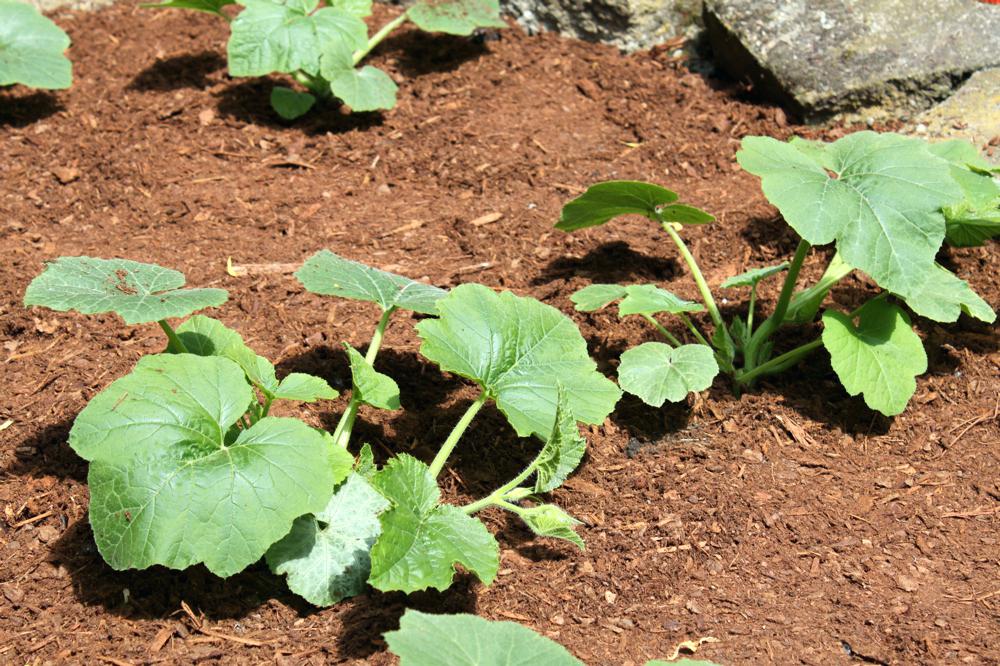1. Wood chip mulch can alter your garden acidity
Many people who use tree services don’t have the slightest idea what kinds of trees are chipped up. What’s more, some trees are definitely not pH neutral. You need to be aware that some mulches can have an adverse effect on soil acidity.
2. Long-term use of wood chip mulch may increase the fungal dominance in your soil
Annual vegetables prefer and do best in bacterially dominated soil. Your vegetables might do really well the first few years, but once that fungal dominance is established, you may notice a decline. This is the reason you may even rethink mulch gardening.
3. Wood chip mulch requires that you use a lot of composted manure to balance the C:N ratio
To counteract the high carbon to nitrogen proportion in wood chips, you need a great amount of composted manure. Vegetables need to have the delicate balance of their Carbon to Nitrogen ratio (C:N) preserved at 30:1 or lower. New wood mulch has up to 3 times that much carbon!
If you’re putting that much composted manure in your garden in any case, avoid the work of the wood chip mulch altogether. A decent layer of manure will give you great harvest of tasty veggies and smother weed development.
4. Some trees are poisonous to other plants
Allelopathy is “the suppression of growth of one plant species by another due to the release of toxic substances.” So unless you are completely certain what trees are in your wood mulch, you might accidentally kill your tomatoes. Black walnut trees are one example of such trees.
Sawdust mulch, fresh sawdust or chips from street tree prunings from black walnut are not suggested for plants sensitive to juglone, such as blueberry or other plants that are sensitive to juglone. However, composting of bark for a minimum of six months provides a safe mulch even for plants sensitive to juglone.
Juglone can affect blackberry, blueberry, apple, cabbage, peppers, tomatoes, eggplant, potatoes, & certain cole crops in particular.
A few of the other trees that can have an allelopathic effect on plants include hickory, pine, sassafras, and oak. (Oak is known to discourage herbs & grasses in particular.)


6 thoughts on “4 Things You Should Know About Wood Chip Mulch”
dee
(March 29, 2019 - 9:49 pm)came upon this page on facebook–good info on multiple situations.
Purple Thumb
(March 31, 2019 - 6:31 pm)This is absolute junk.
John Posson
(May 15, 2019 - 10:14 pm)Care to elaborate as to how this is absolute junk? Do you have credible sources to back your claim or is this just your person opinion with no resources to back your claim?
Jim
(May 22, 2019 - 4:24 pm)Wood chips on top of the soil will not reduce nitrogen in the soil. Soil microbes do not migrate up in the soil to find the mulch where C:N ratio are in imbalance. Wood mulch mixed into the soil will temporarily reduce nitrogen.
Jesse
(September 17, 2019 - 1:03 am)All I have to say to this is watch James Prigioni, Plant abundance, and the vegan athlete on Youtube. Their channels all prove that this information is inaccurate. They have been using wood chips to create soil for years and their results are very credible.
Milton Platt
(November 16, 2019 - 1:00 pm)I have used wood chips (mostly hardwood) for years in an orchard with great results. I do side dress with manure every Spring, but that’s about it. The first two springs after I started using wood chip mulch, I complimented with an application of nitrogen. After that, it’s just been wood chips